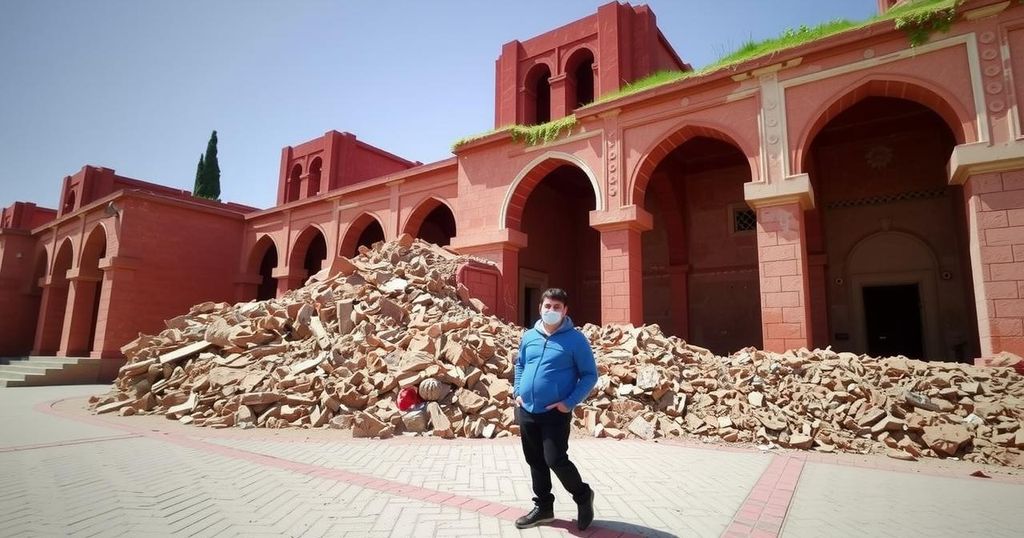Moroccan Activists Face Legal Challenges Over Earthquake Relief Criticism

Four Moroccan activists, including Said Ait Mahdi, face charges in connection with their criticisms of the government’s response to the 2023 earthquake. Ait Mahdi has been in custody while the others remain free. The charges stem from social media posts deemed offensive by local officials. The Moroccan government has initiated reconstruction efforts, with a budget of $11.7 billion aimed at assisting affected families.
On Monday, four activists advocating for the victims of the September 2023 earthquake in Morocco faced court charges, including defamation. Specifically, Said Ait Mahdi, the leader of the Al Haouz Earthquake Victims Coordination, was brought before a Marrakesh court on claims of defamation, insult, and the dissemination of false information intended to infringe on individuals’ privacy. His lawyer, Mohamed Nouini, reported that while Ait Mahdi has been in custody for a week, the other three defendants facing charges for “insulting public officials” are currently at liberty.
The origin of these legal charges stems from complaints filed by local officials regarding social media posts deemed offensive. Ait Mahdi’s defense team has submitted a request for his release pending trial, which is scheduled for January 6. The Al Haouz province, which suffered severely from the 6.8-magnitude earthquake, is seeking to expedite recovery efforts, as the disaster resulted in approximately 3,000 fatalities and extensive property damage, leaving many families homeless and vulnerable throughout the impending winter season.
In response to the disaster, Moroccan authorities have initiated a comprehensive reconstruction plan projected to span five years, with a budget of approximately $11.7 billion. By early December, around 57,000 reconstruction permits had been issued, and over 35,000 homes were either completed or under construction, demonstrating a commitment to restoring the affected communities. A significant portion of the allocated funding, amounting to $740 million, is designated to assist displaced families in rebuilding their homes, with support to be provided in phased installments.
These ongoing developments highlight the tension between local governmental responses and civil advocacy for disaster relief and reconstruction efforts.
The September 2023 earthquake in Morocco had a devastating impact, particularly in Al Haouz province, resulting in nearly 3,000 deaths and leaving countless individuals without shelter. The earthquake erased tens of thousands of homes, compelling families to endure harsh weather conditions outdoors. In response, the Moroccan government has embarked on an ambitious reconstruction initiative featuring a substantial budget aimed at revitalizing the affected regions and providing relief to displaced families. However, activism related to these issues has sparked legal repercussions for certain advocates, underscoring the ongoing challenges faced by those seeking to hold authorities accountable.
In summary, the legal challenges against activists advocating for earthquake victims underscore significant tensions in Morocco regarding accountability in disaster response. With the government pursuing extensive reconstruction efforts, the case of Said Ait Mahdi raises critical questions about freedom of speech and the role of activism in ensuring transparency and support for those affected by natural disasters. The ongoing trials reflect broader societal issues concerning governmental accountability and the rights of citizens to voice their concerns.
Original Source: www.barrons.com








